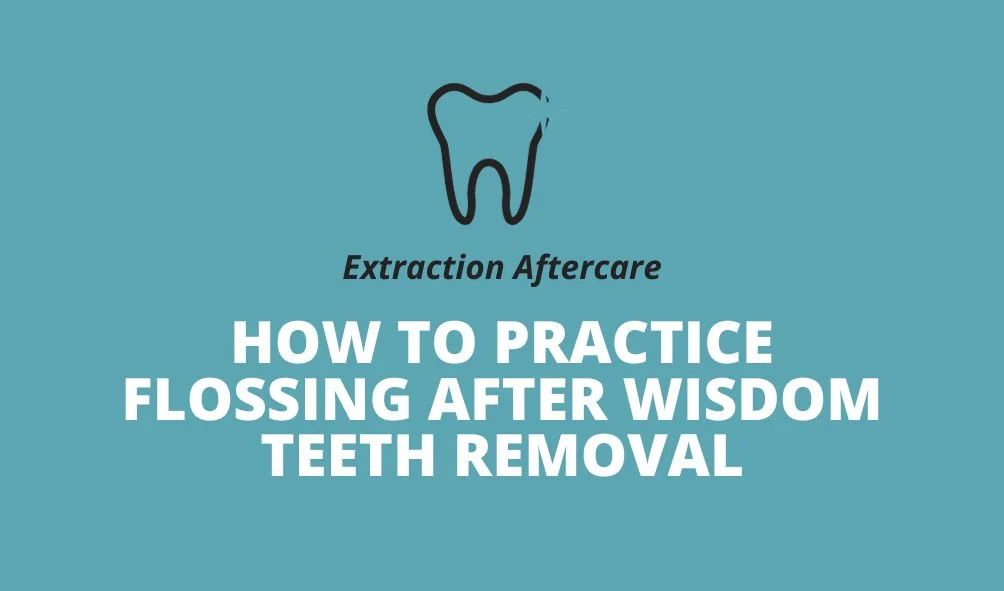Flossing after wisdom teeth removal is important for good oral hygiene and preventing complications during the healing process. Wisdom teeth removal can leave sockets in the back of your mouth where the teeth were extracted, and these areas can be susceptible to food particles and bacterial buildup.
Flossing can help keep these areas clean and minimize the risk of infection or other issues. Flossing is a vital component of post-wisdom teeth removal care. It helps prevent infection, minimizes food traps, and maintains overall oral health during the healing process.
Can You Floss After Wisdom Teeth Removal
Flossing can be resumed after wisdom teeth removal, but it should be done gently and in accordance with the advice and instructions of your oral surgeon or dentist. Proper flossing will prevent infection and maintain your overall oral health during the recovery process.
Try to avoid direct contact with the extraction sites when flossing. Floss the adjacent teeth carefully, and if you do reach the area of the extraction site, do so gently and with caution.
When to Begin Flossing After Wisdom Teeth Removal
It’s generally recommended to wait for a specific period before resuming flossing after wisdom teeth removal. Your oral surgeon or dentist will provide post-operative instructions, including when it’s safe to start flossing again. In most cases, you may be advised to wait around one week after the extraction.
It’s essential to be patient and cautious during the initial stages of healing after wisdom teeth removal. If you have any doubts or questions about when it’s safe to start flossing or how to do so properly, consult with your dentist for personalized guidance based on your specific case and recovery progress.
Dealing with Sensitivity
Dealing with sensitivity, especially after dental procedures like fillings, extractions, or even routine cleanings, requires care and attention to reduce discomfort and pain. Acidic foods and drinks can contribute to tooth sensitivity by eroding tooth enamel. Limit your consumption of acidic items such as citrus fruits, sodas, and vinegar-based products.
Applying a cold compress to the outside of your cheek in the first 24-48 hours can help reduce swelling and provide temporary relief from sensitivity. Rinsing your mouth gently with warm saltwater can help keep the surgical sites clean, promote healing, and reduce sensitivity.
Stick to a soft and easy-to-chew diet during the initial days after surgery. Avoid hot, spicy, or acidic foods that may irritate the surgical sites and contribute to sensitivity.
It’s important to remember that some degree of sensitivity and discomfort is normal after wisdom teeth removal. However, these symptoms should gradually improve as the healing process progresses.
Special Considerations for Flossing After Wisdom Teeth Removal
Flossing after wisdom teeth removal requires special care and considerations to ensure proper oral hygiene and promote healing while minimizing discomfort. Initially, avoid flossing for the first 24-48 hours following wisdom teeth removal. This allows the surgical sites to clot and begin the healing process undisturbed.
Traditional dental floss can be challenging to use immediately after wisdom teeth removal. You may find it more comfortable to use alternative flossing tools like soft picks, interdental brushes, or water flossers. It will be gentler on the surgical sites.
Flossing in Preventing Infection
Flossing helps remove plaque and food particles that can accumulate between your teeth and along the gumline. Plaque is a sticky film of bacteria that can lead to tooth decay and gum disease if not removed. By flossing, you effectively eliminate these sources of potential infection.
When plaque builds up along the gumline, it can lead to gingivitis, an early form of gum disease characterized by inflammation and potential infection. Regular flossing helps prevent gingivitis and maintains the integrity of your gum tissues.
If you have an existing infection or dental issue, such as a cavity or gum infection, flossing can help prevent the infection from spreading to neighboring teeth and tissues. It’s important to note that flossing should be performed correctly and regularly to maximize its infection-prevention benefits.
Wrap up
The timing of when to start flossing after wisdom teeth removal depends on your individual healing progress and your dentist or oral surgeon’s recommendations.
Continue with regular dental check-ups and follow-up appointments. Your oral surgeon or dentist will monitor the healing process, provide guidance on your oral hygiene routine, and address any concerns you may have.
FAQ
Yes, you can floss after a tooth extraction, but it’s essential to do so with care and follow specific guidelines to avoid causing any damage or discomfort to the extraction site. Typically, it’s recommended to wait for a week before starting flossing after a tooth extraction.
In many cases, oral surgeons recommend to not use a Waterpik for at least three weeks after wisdom tooth removal or any other oral surgery. Always follow the specific post-operative instructions provided by your oral surgeon or dentist. These instructions are tailored to your individual situation and will guide you on when and how to use a water flosser or any other oral hygiene tool.
Yes, you can brush your teeth after wisdom teeth removal, but it should be done gently and with certain precautions. However, be extremely gentle, especially around the surgical sites and the areas near the extraction sites. Use a soft-bristled toothbrush to avoid causing any damage or irritation to the healing tissues.
A sticky sensation on your teeth after wisdom tooth extraction could be due to inadequate oral hygiene during the recovery period. Brushing and flossing should be done gently and with care, especially around the surgical sites. If you haven’t been cleaning your teeth well enough or if you’ve been avoiding the extraction sites as per post-operative instructions, this can lead to a sticky or unclean feeling.
It is generally recommended to avoid brushing your teeth for the first 24 hours following wisdom teeth removal. During this time, the focus should be on allowing the surgical sites to clot and start the healing process without any disturbance.

